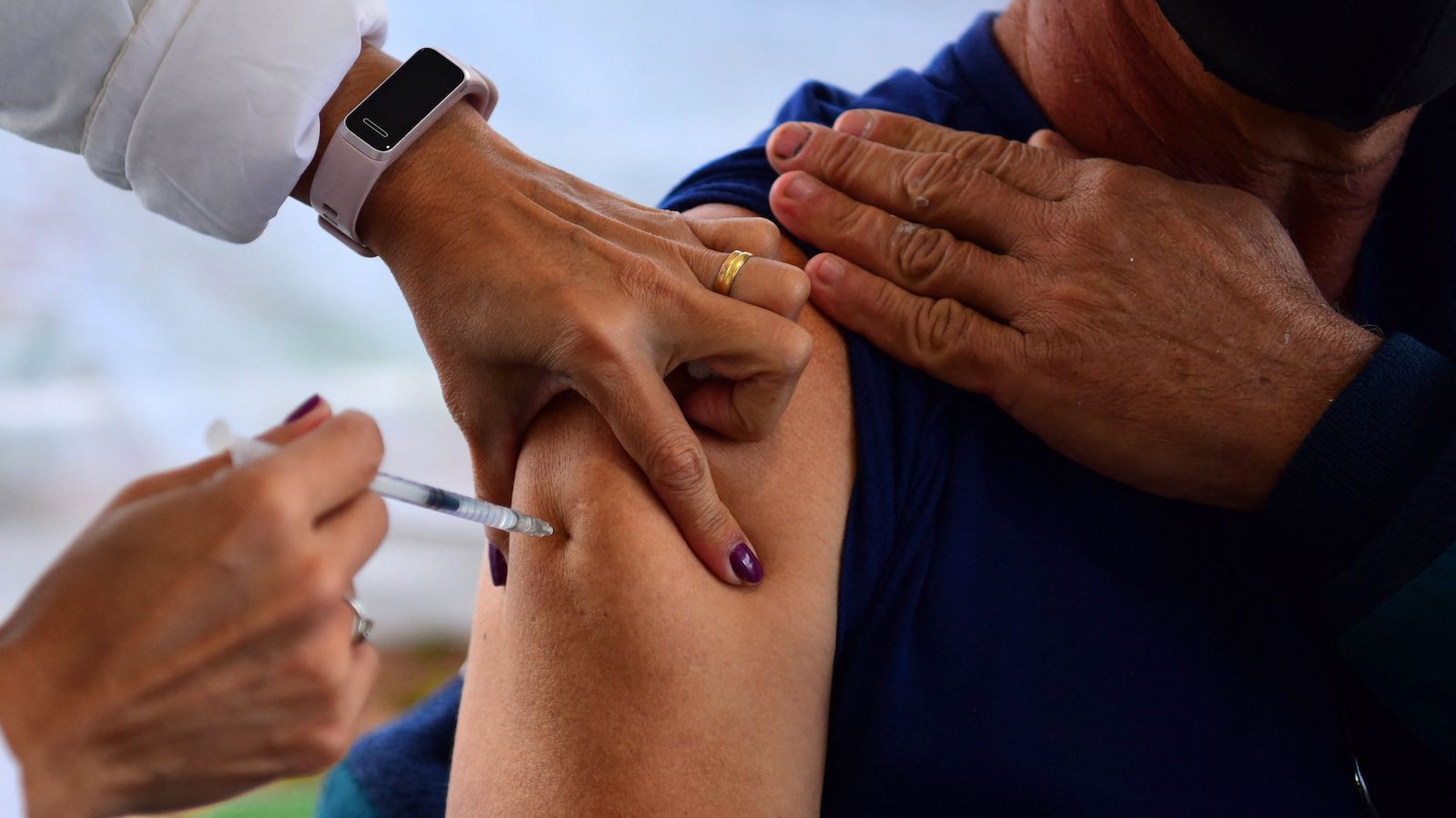(CNN Español) – In Latin America, people who have the first dose of the AstraZeneca vaccine against covid-19 we are frequently asked if they can receive the second dose but from another manufacturer.
A study indicates that this vaccine, developed in conjunction with the University of Oxford, could be mixed with Moderna’s. Dr. Elmer Huerta breaks down the information in this episode.
You can listen to this episode on Spotify or your favorite podcast platform or read the transcript below.
Hello, I am Dr. Elmer Huerta and this is your daily dose of information about the new coronavirus. Information that we hope will be useful to take care of your health and that of your family.
Today we will see some news that we have found important during the week of July 12-16.
The combination of doses of the vaccine against covid-19, a frequent doubt
One of the topics of the most conversation this week, and which at the same time answers dozens of questions that we are asked on our Twitter account @DrHuerta, is the one that refers to the possibility of combining different types of vaccines.
Whether for reasons of mistrust of the vaccines they have received in their countries, or because -after having received certain vaccines- they need to comply with the necessary migration regulations to enter Europe, many people wonder if it is possible to revaccinate with some other vaccine .
In that sense, frequently asked questions are, for example, if after having received the Sinovac (CoronaVac), Sputnik V or Sinopharm vaccine, it is possible that they can receive the Pfizer or Moderna vaccines.
Another very frequently asked question is that if after having received the Johnson & Johnson vaccine, which requires only one dose, it is possible that they can receive another as a booster.
This week is published in the New England Journal of Medicine del 14 de julio, that AstraZeneca / Oxford and Moderna vaccines can be combined.
This study joins the only other scientifically studied and published combination of vaccines, that of AstraZeneca / Oxford with that of Pfizer / BioNTech.
AstraZeneca and Moderna: what scientists say about this mix
But let’s look at the study on the combination of AstraZeneca and Moderna vaccines.
Researchers from the Karolinska Institute and the University of Umea, both in Sweden, invited 88 healthcare workers who had received the first dose of the AstraZeneca vaccine to participate in the study. It consisted of asking them to choose which vaccine they wanted to receive as a second dose, the same from AstraZeneca, or one from Moderna. 37 volunteers chose a second dose of AstraZeneca, while the remaining 51 chose Moderna as their second dose.
After receiving the vaccine, blood was drawn to measure neutralizing antibodies against the spike of the new coronavirus, an examination that was repeated 7 to 10 days later, and 30 days later.
In this way, the researchers were able to compare the amount of neutralizing antibodies produced in both groups, those who received Moderna and those who received AstraZeneca.
The results indicated that on the day of the booster, all the participants had a similar amount of neutralizing antibodies against the spike, which is explained by the fact that all had received the AstraZeneca vaccine as the first dose.
But in the 7-10 day analysis, a huge difference was seen.
What did the scientists see?
While those vaccinated with AstraZeneca had neutralizing antibody levels 5 times higher than the day they received the booster, those who received Moderna as a second dose had levels of neutralizing antibodies against spike protein S 115 times higher than the booster day.
At 30 days, the levels of neutralizing antibodies against spike protein S remained similar to those detected at 7 to 10 days in both groups.
The research also found that protection against the beta variant, first detected in South Africa, was higher when volunteers received the second dose of Moderna instead of AstraZeneca.
The authors conclude that Moderna’s vaccine can effectively stimulate the memory cell population generated in response to the first dose of AstraZeneca’s vaccine, administered 9 to 12 weeks earlier. Their data suggest that messenger RNA vaccines could be useful in vaccination strategies that deliver a third dose to people who have previously received two doses of AstraZeneca.
The latest about vaccine mixtures of different technologies
On the other hand, a review of the vaccine mix issue, published in the journal Nature from July 1, describes that some research has found that vaccines that use a viral vector (AstraZeneca’s, for example) would be capable of being more stimulating of the cellular memory component. While messenger RNA vaccines would be more efficient in stimulating the production of antibodies, a fact that could be exploited in the future to combine these two types of vaccines.
In summary, as of yet, it is scientifically impossible to recommend the combination of any vaccine other than AstraZeneca and Pfizer, and now AstraZeneca and Moderna, and despite the fact that Canada allows interchangeability of vaccines from Pfizer and Moderna, the US FDA has not authorized it.
Anyone wishing to combine vaccines of other types would actually be self-medicating, so we recommend consulting a doctor before doing so.
Do you have questions about the coronavirus?
Send me your questions on Twitter, we will try to answer them in our next episodes. You can find me in @DrHuerta.
If you think this podcast is helpful, help others find it by rating and reviewing it on their favorite podcast app. Make sure to subscribe to get the latest episode on your account.
And to get the most up-to-date information you can always go to CNNEspanol.com. Thanks for your attention.
If you have any questions you can send it to doctor Elmer Huerta via Twitter. You can also go to CNNE.com/coronaviruspodcast for all episodes of our “Coronavirus: Fact vs. Fiction” podcast.
–


